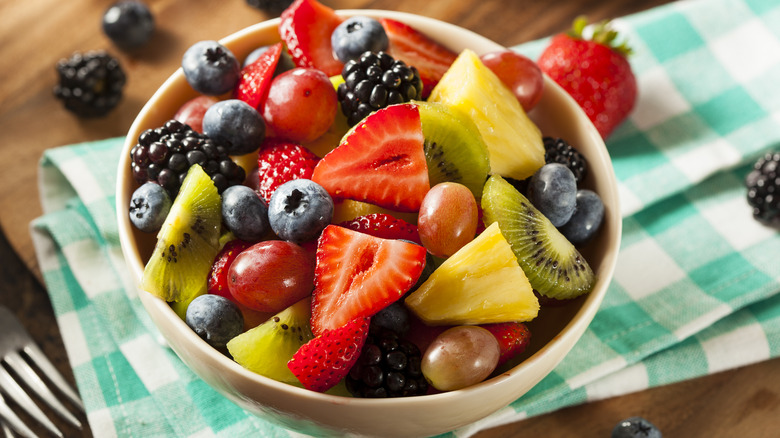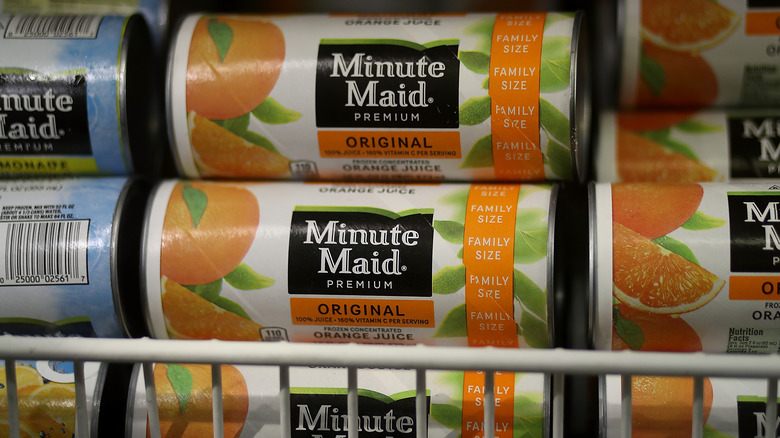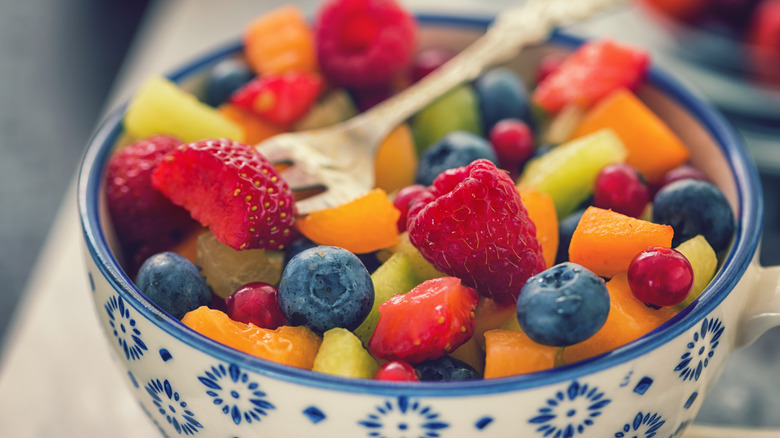Fruit Salad Isn't Complete Without Frozen Juice Concentrate
Fruit salad is a simple dessert or snack that's also an excellent way to clear out your fridge. However, it can sometimes feel more like a hodgepodge of odds and ends rather than a cohesive dish, especially if the fruit you've purchased is bland. Luckily, the addition of frozen juice concentrate can completely transform this humble dish.
Not only does juice concentrate add complexity and a unifying flavor, but it also introduces just the right amount of sweetness to the mix. (Pro tip: If you prefer your fruit salad even sweeter, consider adding a drizzle of honey or a sprinkle of sugar.) For an extra flavor boost, incorporate some fresh citrus juice and zest. Any type of citrus fruit will work, as long as it pairs well with the juice concentrate you've chosen. For example, you might try cranberry juice concentrate with lime juice and zest, or grapefruit juice concentrate with fresh orange juice and zest.
Why frozen juice concentrate makes fruit salad so tasty
Juice from concentrate is made by removing most of the water from fresh juice and heat-treating it to deactivate the natural enzymes in the fruit. This process helps preserve the quality of the juice after freezing. Normally, you dilute concentrate with water to make juice. However, when you add it undiluted to a fruit salad, it acts like a simple syrup and encourages maceration, which is a process that softens fruit and causes it to release its natural juices. Sugars, syrups, wine, liqueurs, and juices can all be used for maceration. The frozen juice concentrate is absorbed by the fruit, and in turn, the fruit releases its natural flavors into the juice. The end result is fruit with a pleasant texture and a sweeter taste, enveloped in a syrup that captures the flavors of all the fruits in the salad.
It's worth noting that maceration can make the fruit very soft. While this might not be ideal for a simple bowl of fruit salad, it could be perfect for an ice cream sundae topping. If you prefer your fruit to remain crisp, add the frozen juice concentrate about half an hour before serving. This allows the flavors enough time to meld while maintaining the fruit's crunch.
What kind of fruits and frozen juice concentrate should you use
It's best to use sturdier fruits in a fruit salad, such as pineapple, melons, mangos, strawberries, oranges, pomegranate seeds, cherries, and blueberries. While apples have a great texture, they can brown quickly; if you want to use them anyway, soaking them separately in cold water with lemon or salt can help them stay bright and crisp. Avoid adding delicate fruits like bananas, raspberries, or peaches to the mix. If you really want to include them, scatter them on top of the salad so they maintain their shape.
When choosing frozen juice concentrate, opt for packages that have a "100% juice" label. According to Healthline, concentrates made from pure juice are the most nutritionally dense, although it's worth noting that fruit juice naturally contains a significant amount of sugar. As with many packaged products, look for frozen juice concentrates with as few additives as possible. Keeping a carton of juice concentrate in your freezer allows you to easily transform a mundane fruit salad into something truly delectable.



